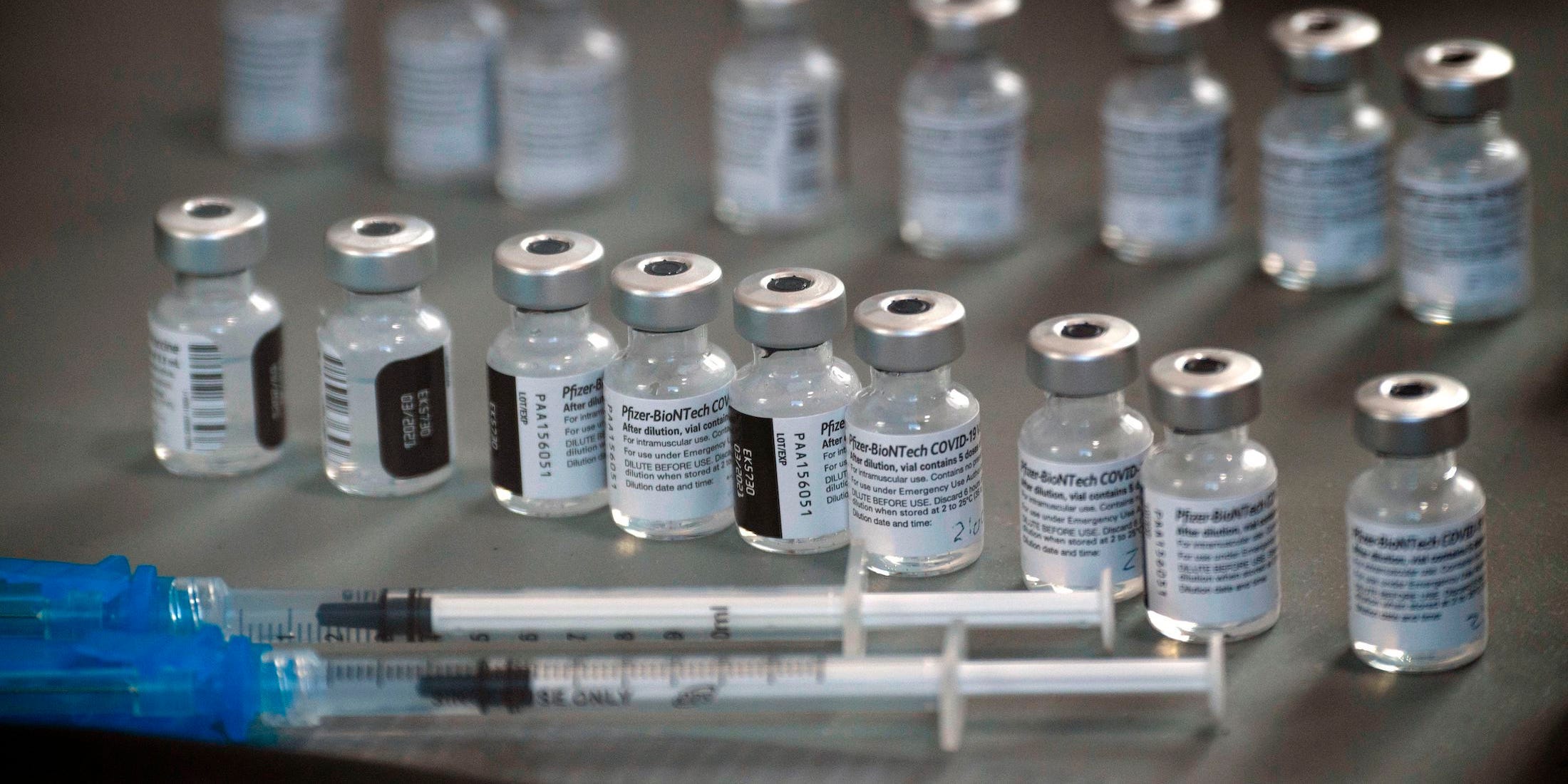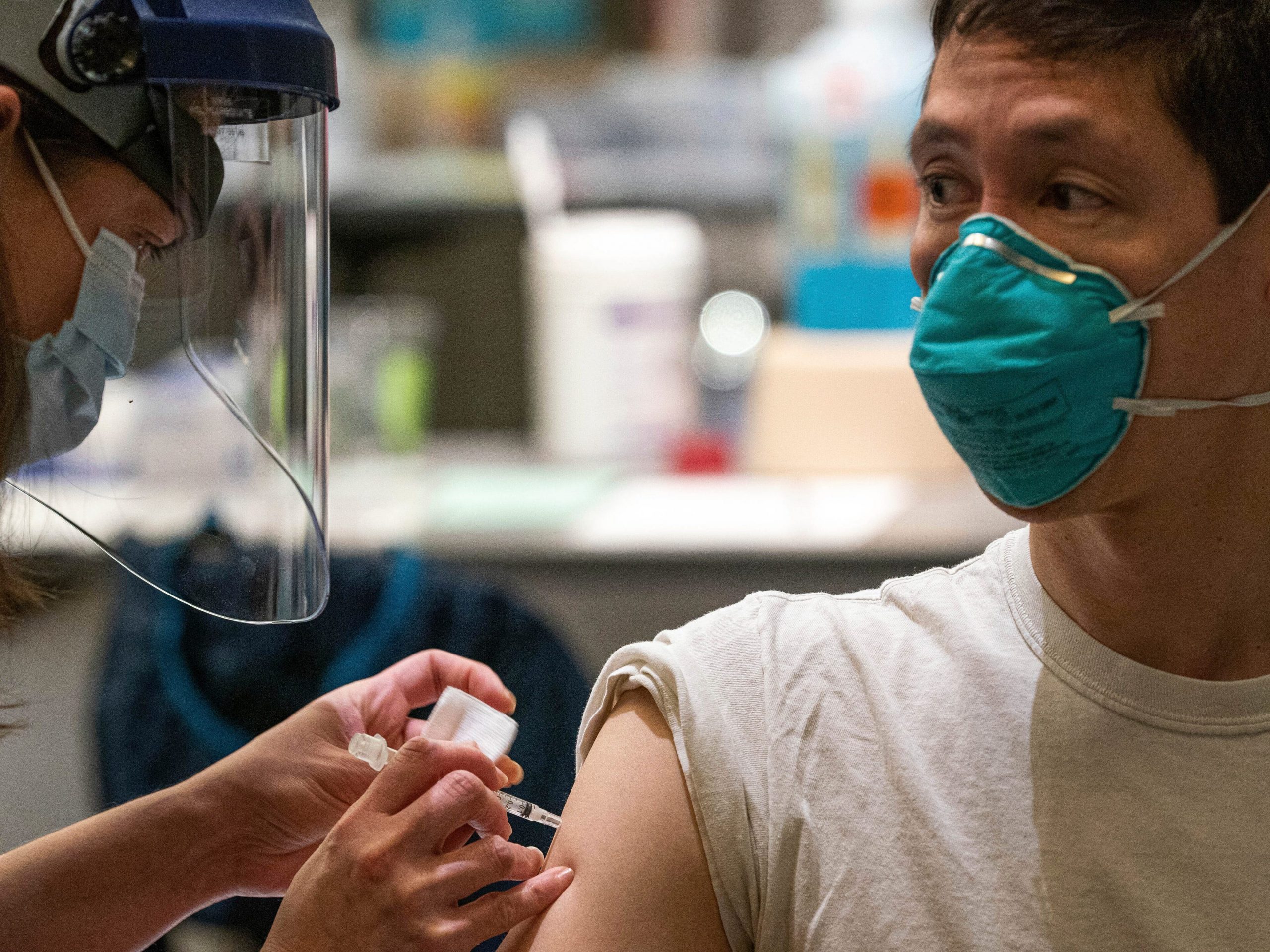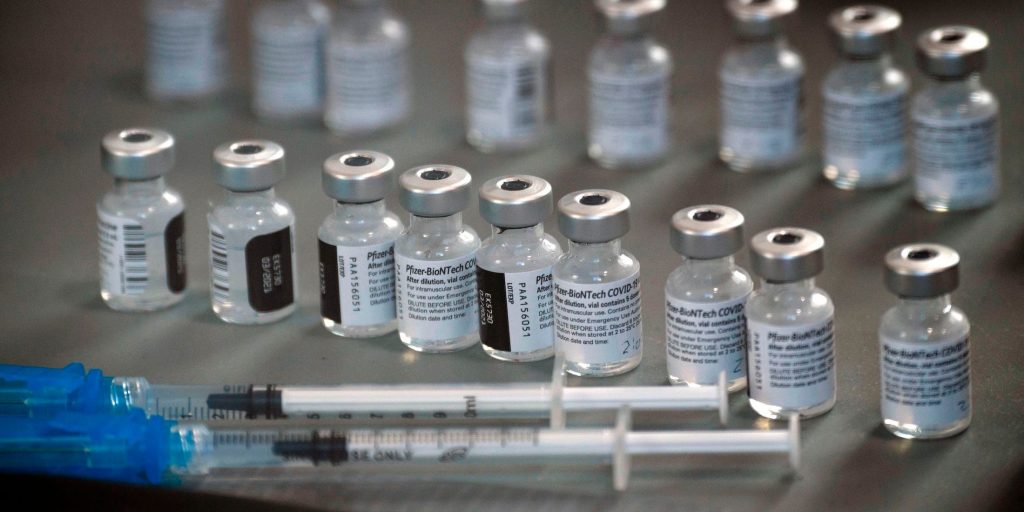
Patrick Fallon/AFP via Getty Images
- The FDA released documents Wednesday giving a look at Pfizer's case for COVID-19 booster shots.
- The data shows a third dose of Pfizer's shot raised antibody levels with no major safety concerns.
- An expert panel will make recommendations to the FDA on booster shots on Friday.
- See more stories on Insider's business page.
The US Food and Drug Administration published documents on Wednesday that provides the most comprehensive look yet at the case for COVID-19 booster shots.
In the documents, the vaccine's maker, Pfizer, argues that the data support giving a booster dose to all people 16 and older who are six months removed from their second dose. To show that a third dose is necessary, Pfizer cites several studies showing that protection from the two-dose vaccine wanes over time.
Pfizer also included two small clinical studies that showed that giving a booster shot was safe and generated an immune response.
The documents set the stage for a critical FDA meeting scheduled for Friday, where a panel of independent experts will debate, and ultimately vote, on whether to recommend that people get an extra dose of the Pfizer-BioNTech coronavirus vaccine.
The FDA hasn't yet released its own analysis of the data. The agency said it's working to do so "as quickly as possible."
The Biden administration previously said it plans to start offering booster shots to the general public on September 20, with people becoming eligible when they are eight months removed from their second dose. The plan depends on securing OKs from the FDA and the Centers for Disease Control and Prevention, officials said.

Loren Holmes/Anchorage Daily News via AP, Pool
That plan has stirred controversy because it was announced in advance of the ongoing FDA review. Two senior FDA vaccine reviewers coauthored an article in The Lancet on Monday along with more than a dozen other top scientists arguing that booster shots aren't yet needed for the general population. Those two longtime agency leaders will leave the agency this fall, reportedly in part due to their opposition to the Biden booster-shot plan.
The document from Pfizer shows that a third dose of the vaccine raises levels of neutralizing antibodies, which are critical virus-killing proteins that play a key role in our immune response, and sparked no major safety concerns.
The booster-shot debate has gained urgency due to the spread of the Delta variant, which carries certain mutations that make the virus far more contagious. Those mutations have also made the vaccines, which were developed against the original strain of the virus, somewhat less effective, particularly at stopping asymptomatic or mild infections.
Real-world results still show that protection against severe disease, hospitalization, and death remain quite high, leading to the debate over whether or not boosters shots are now needed.
In particular, Pfizer's documents included a new analysis of its massive late-stage clinical study, breaking out the data to focus just on the Delta variant. While there was not a statistically meaningful difference between Delta infections and other sequenced variants, the vaccine dropped to 53% effectiveness at preventing infection four months after vaccination.
The FDA documents also provided the most detailed look yet at the side-effect profile for booster shots. Previously, Pfizer has described the safety of booster shots in press releases as generally in line with the second dose.
In Pfizer's study of about 300 younger volunteers, the most common side effects were injection site pain (83%), fatigue (64%), headache (48%), muscle pain (39%), and chills (29%).
Those rates are roughly in line with what trial volunteers experienced after the second dose, and the vast majority of theses side effects were mild or moderate in intensity. The most common severe side effect was fatigue, which about 5% of participants reported.
The expert panel will listen to presentations from officials from the CDC, the UK, Israeli public-health officials, Pfizer, and FDA reviewers. The FDA also did not release the questions it will ask the group to vote on.
While the FDA typically follows the recommendations of its expert panels, it isn't required to do so. If the FDA authorizes booster doses, the CDC's own independent group of advisors would then debate and vote on recommendations for how boosters should be rolled out.

